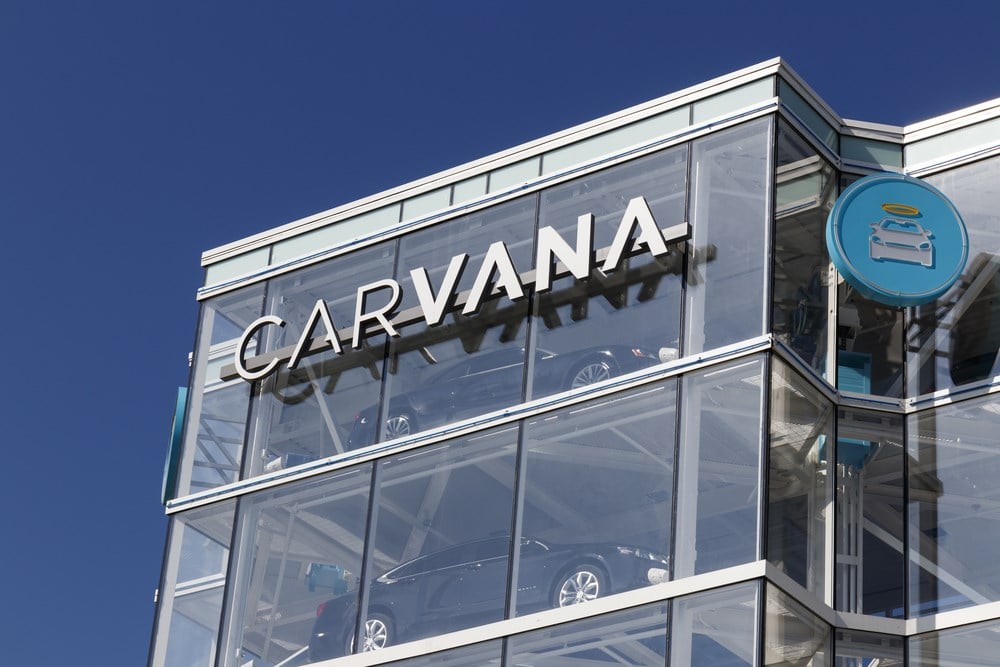
The used car market experienced aggressive price swings throughout 2022 as the supply of new vehicles dried up amid chip shortages limiting the number of cars that would hit the market. Since new vehicle production was at a deficit compared to the ensuing demand the market brought on, used vehicles became the only alternative for would-be car buyers, severely inflating inventory prices beyond the normalized market value.
Used car-focused dealers like Carmax (NYSE: KMX) saw their shares decline by more than 60% off peak prices from 2021. Carvana (NYSE: CVNA) is one such car dealer facing broad industry problems and internal debt issues. The company reported its first quarter 2023 earnings results in early May; shares of Carvana are rallying as much as 35% amid rapidly building momentum. Will these quarterly results be enough to swing the stock into bullish analyst price targets?
Vote of Confidence
Currently, Carvana's market capitalization stands at $1.73 billion. However, the company's enterprise value is significantly higher at $8.53 billion. The notable difference between these two values is purely debt, which is $8.88 billion, offset by $755 million in cash. Shares of Carvana lost 98% of their value from all-time highs of $370 per share in 2021; the massive decline may be attributed to concerns over failing to repay interest and principal stemming from these dangerous debt levels. Despite amounting to debt and insufficient operating income to compensate, some financially vested individuals still show faith in the company.
Reportedly, a group representing 90% of Carvana's bondholders has struck a proposal that speaks volumes about the company's potential future. According to private sources dealing with the manner, bondholders have been actively pitching ways to improve the company's liquidity position and save $1 billion in interest payments. In addition, the proposal comes with an additional request from equity investors to inject $1 billion into the business. While these plans represent excellent news for the company, existing investors must digest the possibility of significant dilution when and if these bonds are converted into equity.
Historic Quarter
A more tangible reason for the shares to rally the way they are is found in the company's first quarter 2023 earnings release. One of Carvana's key performance indicators (KPIs) is its 'GPU' or Gross Profit per Unit. The company's GPU achieved throughout 2021, responsible for the stock's all-time high, was over $7,000 per vehicle and fell to less than $4,000 per vehicle during the 2022 slowdown in used cars. Today, as measured by the first quarter results, Carvana's GPU stands at $4,303 per vehicle, translating to a 52% increase compared to the first quarter of 2022.
Despite losing money on a net basis, Wall Street expected the outcome to be much worse. The average Carvana earnings estimate pointed toward a loss of $1.96 per share. The company delivered a loss of $1.51 amid a 3.5% improvement in the net loss margin. Some bears speculate that these recovering statistics may be hard to replicate as interest rates keep rising, making the average cost of financing a vehicle - and a used one - much more difficult for the average consumer.
Never mind the macro environment, some bondholders willing to keep their money invested as equity may be encouraged by cost-cutting achievements during the quarter. Carvana completed - one quarter ahead of schedule - an attempt to reduce its SG&A (Selling, General, and Administrative) expenses by $1 billion. As the business model prides itself on cutting out the middleman within the car sales process, Carvana cut out $160 million in overhead expenses as management focuses on reaching positive adjusted EBITDA for the second quarter of 2023.
All told, markets can lean on the decision by bondholders, along with Carvana analyst ratings pointing to a massive 290% upside from today's prices, to find directional guidance moving forward. Both existing and new investors can feel reassured by management's letter to shareholders, where they reinstate the importance of reaching positive free cash flow within the year before placing any focus on kickstarting growth. The message sent regarding the second quarter outlook was, among other things, a focus on reducing inventory to avoid the price swings that the used car market portrayed throughout the year. Being more efficient with expenses, as shown, coupled with a more sustainable and optimized inventory mix, can be the fundamental pillars that bring Carvana stock back to its former glory.